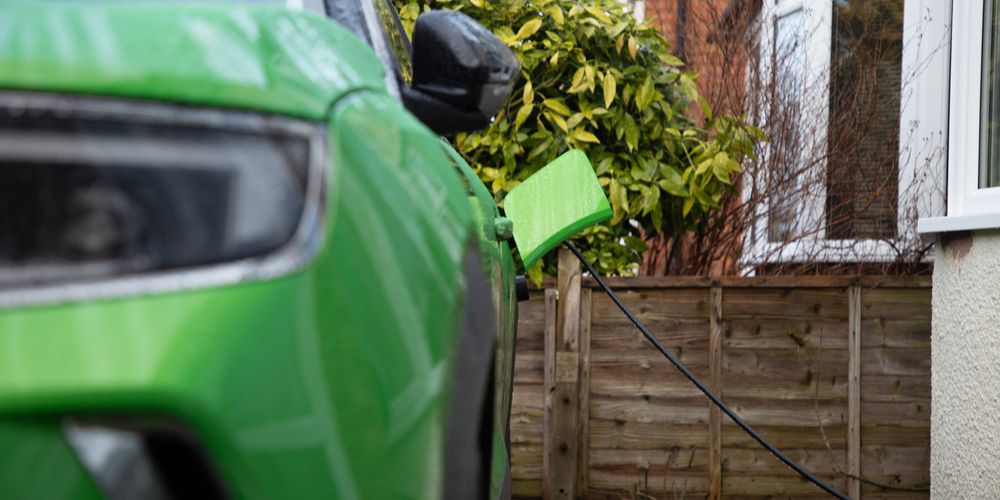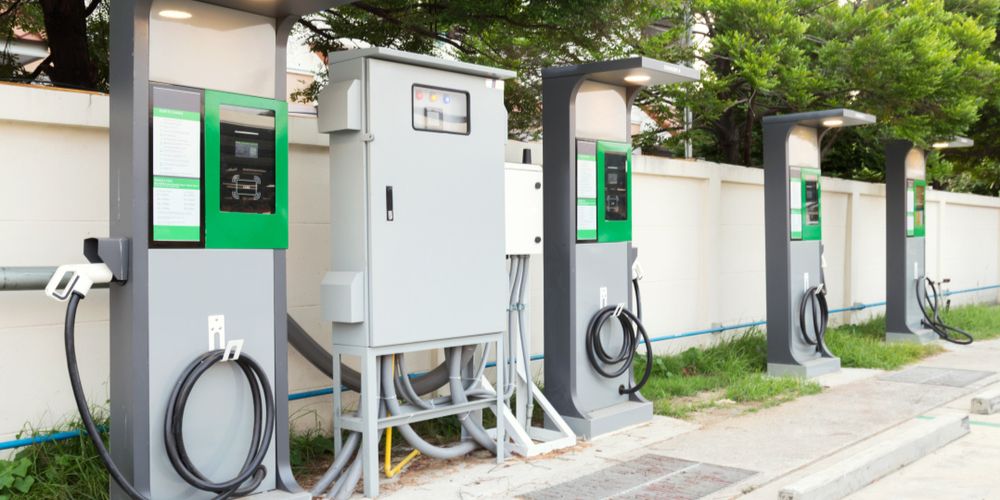Charging times for electric cars can be one of the biggest blockers for anyone considering making the switch to greener, more sustainable driving. At GKL Electric we frequently get asked ‘how long does it take to charge an electric car?’ and our answer is typically ‘longer than petrol or diesel – but not as long as you might think!’
With that in mind, for this post we thought we’d look at EV charge times in more detail, in order to give a more definitive answer.
What is the average time to charge an electric vehicle?
- Home charging: An EV with a typical 60kWh battery will take around 8-10 hours to charge ideally overnight from 0% to 100% on a 7kW home charging point
- On-the-go charging: A sensible rule of thumb we use is that most electric car charging times out and about currently average around 30-40 minutes to add 100 miles from a 50kW rapid charger.
Those however are just the rough averages we like to work with here at GKL Electric. For a more detailed answer, we need to dig into more detail…
How long does it take an electric car to charge at home?

First up, home charging. These figures are often given from 0%-100% battery life, since it’s at home where you’re likely to end long journeys and also to leave your vehicle charging overnight to full capacity.
This being the case, EV charge time is perhaps less of a factor for home charging than it is for charging on the move. Nonetheless, it’s helpful to have a gauge of electric car charging times for those instances when you only have a few hours spare to give your vehicle as much power as possible.
A helpful tool for residential electric car charging times is the Home Charging Stations EV charge time calculator. It lets you put in the charging power of your home charge station along with the battery level of your vehicle. You can use it to calculate from and to specific percentages, or if you know your vehicle’s energy consumption in kWh/100 miles you can calculate the time it will take to add a certain number of miles worth of charge.
Our guide to charging EVs mentions that home chargers are typically 3kWh or 7kWH, so we’ll give results below for both. However, there is some disagreement online amongst credible sources about the average EV battery capacity, with EON Energy suggesting it’s 40kWh and EV Database putting it higher at 67kWH.
For the purposes of the numbers below, we’ve given two options using the Home Charging Stations calculator: one at 40kWH, and one nearer the higher average end at 60kWH.
| 40kWH battery | 60kWh battery | |
| 3kW charge point | 14hrs 48mins to charge from 0-100% | 22hrs 13mins |
| 7kW charge point | 6hrs 20mins | 9hrs 13mins |
How long does it take to charge an electric car at charging stations?

EV charge time for public networks is best measured a little differently. For regular use, the minimum amount we’d recommend letting your battery to is 20%. Using fast charging points from lower than 20% regularly can seriously affect your EV’s battery life.
An even greater consideration for mobile electric car charging times is the higher limit for public charging. Public chargers slow down considerably after 80% to incentivise drivers to move on without hogging the charge point. For that reason, the EV charge time figures we’ve given below account for charging from 20%-80%.
The figures themselves have been worked out using the Zap-Map public charging calculator to get some idea for charge times on slow, fast and rapid chargers (plus even faster where compatible) for three popular electric cars.
| Charge Speed | Nissan Leaf (40kWh battery, 168-mile range) | Volkswagen ID.3 (45kWh battery, 217-mile range) | Tesla Model 3 (50-75kWh battery*, 308-mile range) |
| 7kW (Fast) | 3.4hrs, 91 miles added | 5.1hrs, 104 miles added | 5.1hrs, 166 miles added |
| 50kW (Rapid) | 30mins | 30mins | 42mins |
| 120kW (Tesla Supercharger Network) | N/A | N/A | 18mins |
*Indicates battery options available on this model. Specific battery size for Zap-Map’s results not shown on Zap-Map.
Ready to switch to an electric vehicle?
We hope this post has given you a better idea of typical charging times for electric cars. In truth, public charging on motorway journeys – often the main worry for those making long journeys often – can amount to nothing more than your average pit stop and snack break. And depending on the vehicle you choose, those charging times can come down even further still.
If you’d like more info on EV charging, home charge point installation, and making the switch from a petrol or diesel vehicle, we can help.
Take a look at the blogs below, or get in touch to ask our expert team anything you’d like to know.







